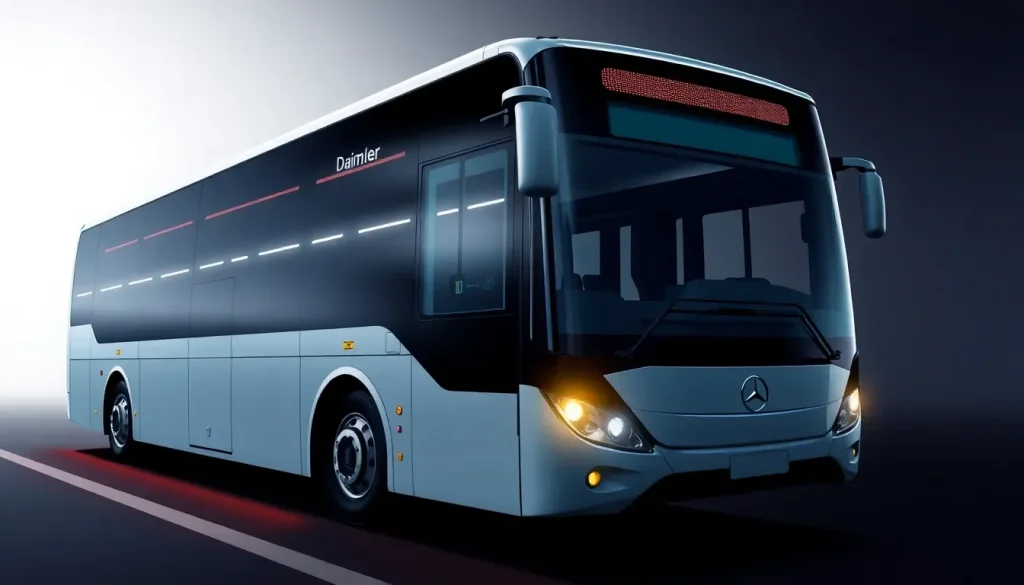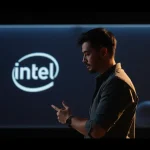Daimler establecerá red de cargadores para buses eléctricos en Alemania

Daimler Buses is making significant strides toward sustainable mobility with its ambitious plan to establish a dedicated network of electric bus charging stations across Germany. This initiative, set to launch in 2026, aims to enhance the infrastructure for rapid charging in Europe, particularly targeting high-traffic urban areas and tourist destinations.
This move not only positions Daimler as a pioneer in the electric bus sector but also underscores the company's commitment to advancing electric mobility solutions. By creating an extensive network of charging stations, Daimler Buses is addressing a crucial gap in the current infrastructure, enabling more efficient and accessible electric bus operations.
Daimler's Electric Bus Charging Network: Key Features
The project will kick off with a pilot program in Cologne, Germany, in collaboration with NRW.Energy4Climate and the local municipality. During this initial phase, anticipated to begin in 2026, four rapid charging points will be installed close to the city center. This marks the beginning of an expansive network that Daimler plans to build over the coming years.
- **Location:** The charging stations will be strategically placed in urban centers and popular tourist spots.
- **Pilot Program:** The initial rollout will see four charging points in Cologne.
- **Future Expansion:** The network is set to grow significantly in the subsequent years.
Pioneering Electric Bus Infrastructure
With this initiative, Daimler Buses emerges as the first manufacturer in Europe to construct and operate its own public charging infrastructure for buses. The entire management process, from planning and design to operation and maintenance, will be handled by Daimler Buses Solutions, a subsidiary focused on innovative energy and electric mobility solutions.
Till Oberwörder, the CEO of Daimler Buses, emphasized the urgency of this initiative: “The future of the bus is electric, but the charging infrastructure is advancing too slowly. We want to accelerate that process with our own stations.” This statement reflects the company's proactive approach to overcoming the challenges associated with electric bus adoption.
The Mercedes-Benz eIntouro: A New Era in Electric Buses
The announcement coincided with the global unveiling of the Mercedes-Benz eIntouro at the Busworld 2025 exhibition in Brussels. This model is the brand's first fully electric intercity bus, designed to cater to both urban and intercity travel needs. Key specifications include:
- Battery Options: Can be equipped with one or two lithium iron phosphate (LFP) batteries.
- Range: Offers an impressive autonomy of up to 500 kilometers.
- Focus: Ideal for intercity services and short-distance excursions.
With the eIntouro, Daimler Buses aims to connect rural and urban areas efficiently while ensuring passenger comfort. This innovative bus represents the future of public transport, aligning with the growing demand for greener alternatives.
Building on Experience: The eCitaro
Daimler Buses has been at the forefront of electromobility since the launch of the eCitaro in 2018. This model has been a significant stepping stone in the transition to electric buses. Notably, the eCitaro will also feature a hydrogen fuel cell variant, extending its range and showcasing Daimler's commitment to versatile, sustainable transportation solutions.
Key elements of the eCitaro include:
- Production Start: Initiated in 2018, demonstrating early leadership in electric buses.
- New Variants: Introduction of a hydrogen fuel cell version available from 2023.
- Comprehensive Range: Aims to offer a complete lineup of electric buses by the end of the decade.
The Importance of Charging Infrastructure
The establishment of a robust charging network is essential for the widespread adoption of electric buses. Currently, many operators face challenges related to insufficient charging facilities, which can hinder the viability of electric fleet operations. By investing in its own network, Daimler Buses is addressing these critical needs and enabling operators to experience the benefits of electric mobility.
Some advantages of a dedicated charging network include:
- Enhanced Accessibility: More charging stations will lead to greater convenience for operators.
- Cost Efficiency: Reduced dependence on external charging providers can lower operational costs.
- Increased Adoption: A reliable charging infrastructure encourages more operators to transition to electric buses.
Future Prospects for Electric Mobility
As Daimler Buses forges ahead with its electric initiatives, the broader implications for the transportation industry are profound. The transition to electric buses not only aligns with global sustainability goals but also fosters innovation within the sector. The company is committed to supporting operators in the transition to electric fleets, ensuring that the shift is both economically viable and environmentally responsible.
In conclusion, the establishment of Daimler's own charging network represents a significant milestone in the electric bus landscape. With the introduction of models like the eIntouro and the ongoing success of the eCitaro, Daimler Buses is poised to lead the charge toward a more sustainable future in public transportation.
For those interested in the latest developments in electric public transport, this video provides insights into the electrification of short-distance highway buses:




Leave a Reply